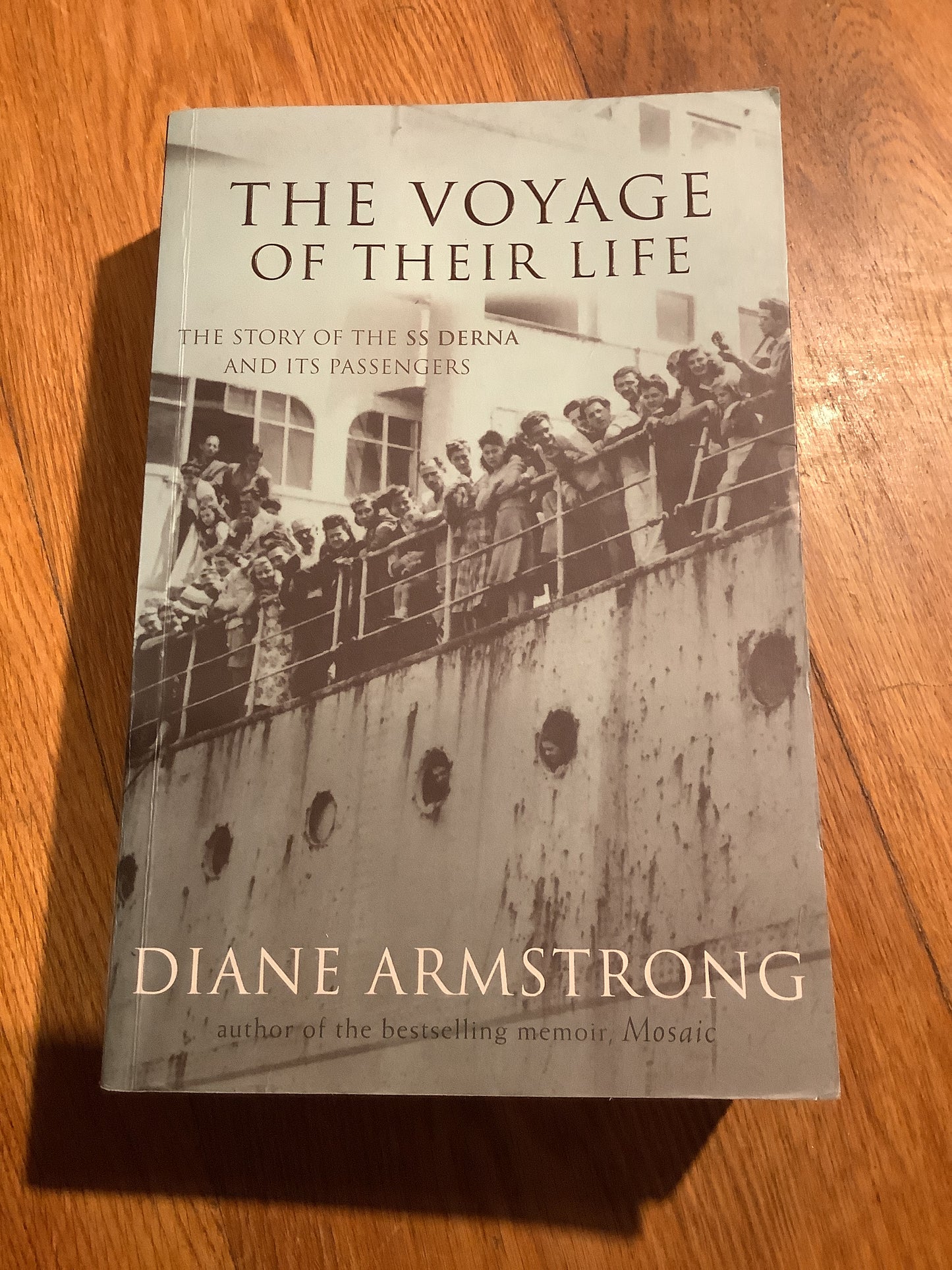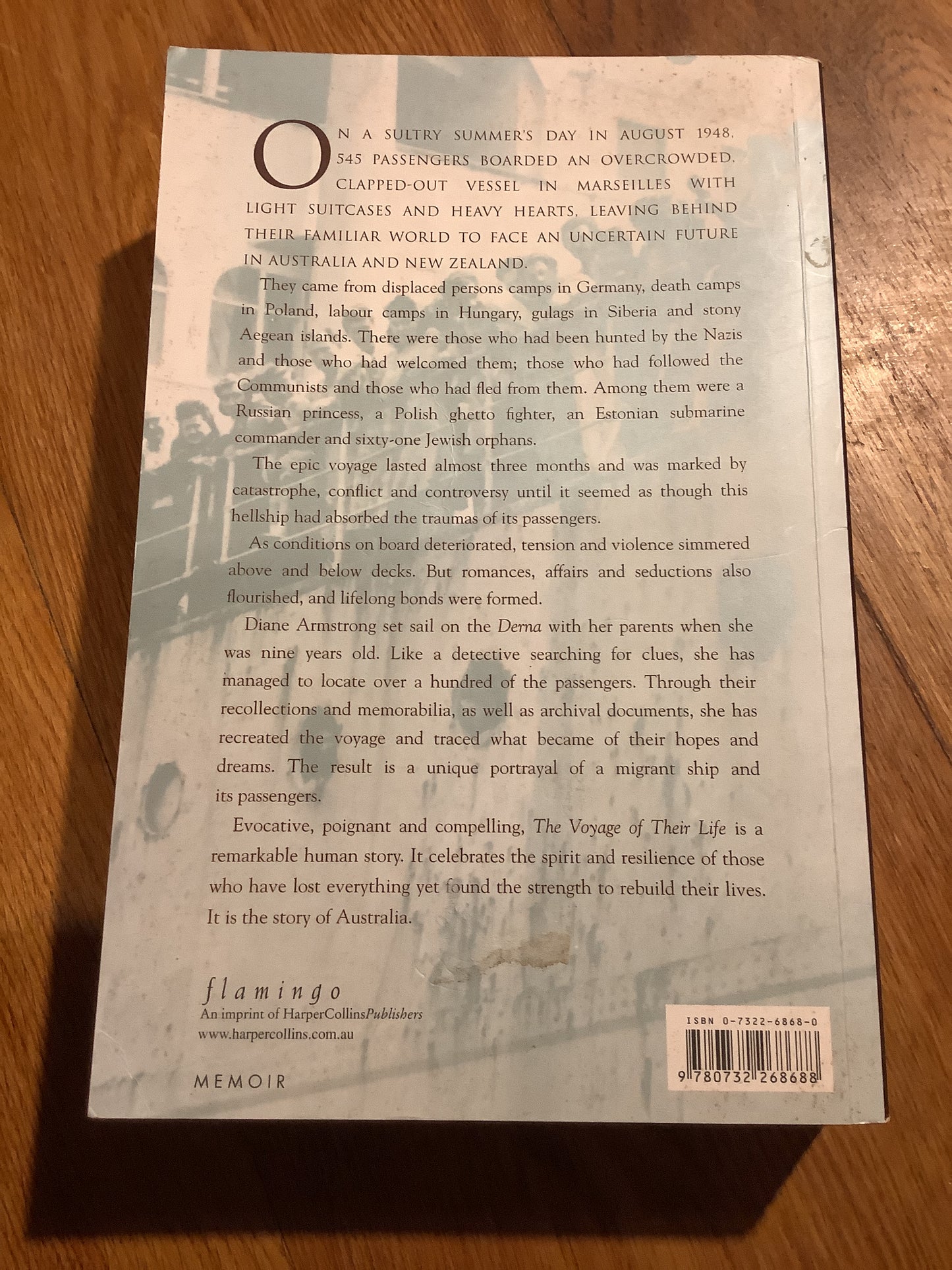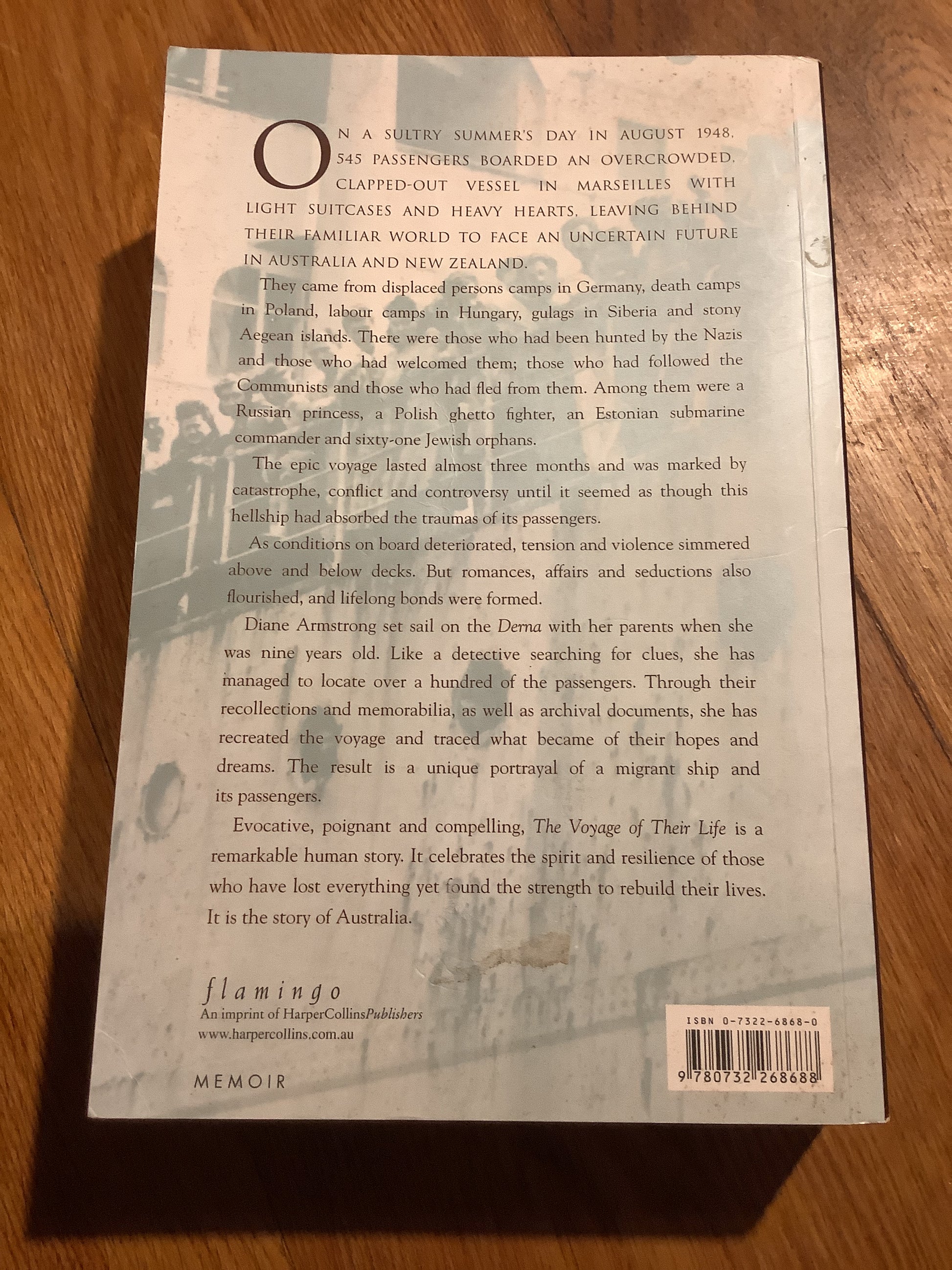Browse Books
Voyage of their life: the story of the SS Derna and its passengers. Diane Armstrong. 2001.
Voyage of their life: the story of the SS Derna and its passengers. Diane Armstrong. 2001.
Couldn't load pickup availability
On a sultry summer’s day in August 1948, 545 passengers boarded an overcrowded, clapped-out vessel in Marseilles with light suitcases and heavy hearts. Leaving behind their familiar world to face an uncertain future in Australia and New Zealand.
They came from displaced persons camps in Germany, death camps in Poland, labour camps in Hungary, gulags in Siberia and stony Aegean islands. There were those who had been hunted by the Nazis and those who had welcomed them; those who had followed the Communists and those who had fled from them. Among them were a Russian princess, a Polish ghetto fighter, an Estonian submarine commander and sixty-one Jewish orphans.
The epic voyage lasted almost three months and was marked by catastrophe, conflict and controversy until it seemed as though this hells hip had absorbed the traumas of its passengers.
As conditions on board deteriorated, tension and violence simmered above and below decks. But romances, affairs and seductions also flourished, and lifelong bonds were formed.
Diane Armstrong set sail on the Derma with her parents when she was nine years old. Like a detective searching for clues, she has managed to locate over a hundred of the passengers. Through their recollections and memorabilia, as well as archival documents, she has recreated the voyage and traced what became of their hopes and dreams. The result is a unique portrayal of a migrant ship and its passengers.
Share




